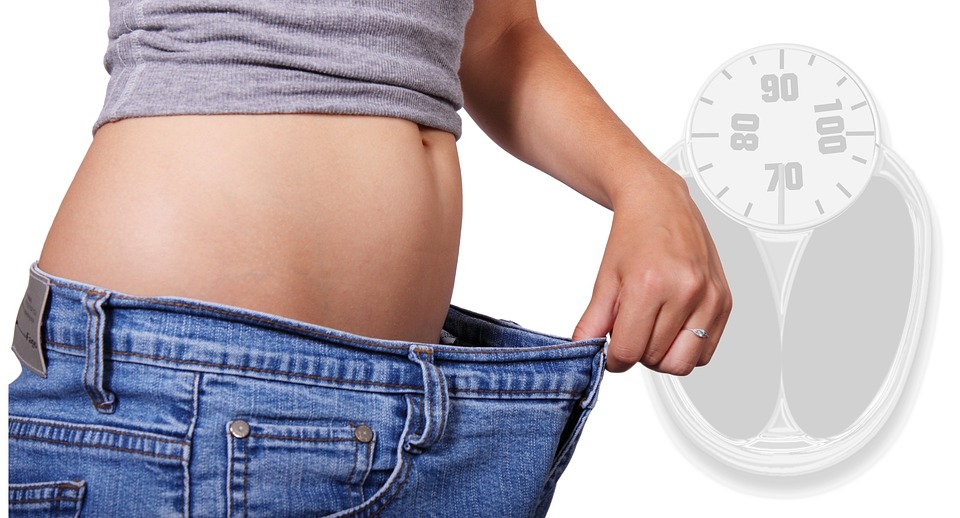The Science Behind Caloric Deficit: How It Helps You Lose Weight
Introduction
When it comes to weight loss, the concept of caloric deficit plays a significant role. Many individuals embark on various diets and exercise regimens to shed those extra pounds, but understanding the science behind caloric deficit can greatly enhance your weight loss journey. In this article, we will delve into the mechanisms and benefits of caloric deficit, and how it can help you achieve your weight loss goals.
Understanding Caloric Deficit
Caloric deficit refers to a state in which you consume fewer calories than your body needs to maintain its current weight. This energy imbalance creates a situation where your body taps into its stored fat reserves to compensate for the energy deficit. In simpler terms, when you consume fewer calories than you burn, your body turns to fat as a source of fuel, leading to weight loss.
It is important to note that caloric deficit should be approached in a sensible and sustainable manner. Drastically reducing your calorie intake can have adverse effects on your health and metabolism. It is recommended to aim for a moderate caloric deficit, usually around 500-1000 calories below your daily maintenance level, depending on individual factors such as age, sex, weight, and activity level.
The Science Behind Caloric Deficit
Caloric deficit operates on the basic principle of energy balance. To maintain your current weight, the calories you consume through food and beverages should be equal to the calories you burn through physical activity and bodily functions. When you create a caloric deficit, your body seeks alternative sources of energy to meet its needs.
One of the primary sources your body turns to during a caloric deficit is stored fat. Adipose tissue, which consists of fat cells, stores excess energy in the form of triglycerides. When you consume fewer calories, your body breaks down these triglycerides into fatty acids and glycerol to be used as fuel.
As the triglycerides are released from fat cells, they enter the bloodstream and are transported to various tissues in need of energy. The fatty acids are then converted into a usable form through a process called beta-oxidation, where they are broken down into acetyl-CoA molecules. These molecules enter the citric acid cycle, also known as the Krebs cycle, to produce energy in the form of adenosine triphosphate (ATP).
During this metabolic process, your body’s fat stores gradually deplete, leading to weight loss. It is essential to maintain a state of caloric deficit consistently over time to ensure continued fat loss.
The Benefits of Caloric Deficit
Engaging in a caloric deficit not only aids in weight loss but also offers several additional benefits:
1. Fat Loss and Improved Body Composition
Caloric deficit specifically targets stored fat as an energy source. By consistently maintaining a caloric deficit, you can reduce body fat percentage, leading to improved body composition. This means you can achieve a leaner and more toned physique.
2. Enhanced Insulin Sensitivity
When you create a caloric deficit, your body becomes more sensitive to insulin, a hormone responsible for regulating blood sugar levels. Improved insulin sensitivity can help prevent insulin resistance and reduce the risk of developing type 2 diabetes.
3. Increased Energy Expenditure
Creating a caloric deficit can boost your metabolism and increase energy expenditure. This occurs as your body adapts to the reduced calorie intake by utilizing energy more efficiently. Regular exercise and strength training can further enhance this effect.
4. Improved Cardiovascular Health
Weight loss resulting from a caloric deficit has been linked to improved cardiovascular health. By shedding excess pounds, you can reduce the strain on your heart and lower the risk of conditions such as high blood pressure and heart disease.
5. Psychological Benefits
Successful weight loss through caloric deficit can have significant psychological benefits. Achieving your desired weight can boost self-confidence, improve body image, and enhance overall mental well-being.
FAQs
Q: How long does it take to see results from a caloric deficit?
A: The rate at which you will see results from a caloric deficit varies depending on various factors such as your starting weight, metabolism, and the extent of the caloric deficit. However, with consistent effort and adherence to a caloric deficit, noticeable weight loss can typically be observed within a few weeks.
Q: Is it necessary to count calories to achieve a caloric deficit?
A: While counting calories can be a helpful tool to ensure you are maintaining a caloric deficit, it is not absolutely necessary. You can also focus on portion control, choosing nutrient-dense foods, and listening to your body’s hunger and fullness cues to create a caloric deficit.
Q: Can I still enjoy my favorite foods while in a caloric deficit?
A: Yes, you can still enjoy your favorite foods while in a caloric deficit. It’s all about balance and moderation. Incorporating occasional treats into your overall diet can help you maintain long-term adherence to a caloric deficit without feeling deprived.
Q: Is exercise necessary for a caloric deficit?
A: Exercise is not mandatory for achieving a caloric deficit, but it can greatly enhance your weight loss efforts. Physical activity helps increase energy expenditure, build lean muscle mass, and improve overall fitness. Combining a caloric deficit with regular exercise can result in more significant and sustainable weight loss.
Q: Can I maintain a caloric deficit indefinitely?
A: While a caloric deficit is an effective strategy for weight loss, it is not recommended to maintain it indefinitely. Prolonged or extreme caloric deficits can lead to nutrient deficiencies, metabolic slowdown, and other health complications. It is important to transition to a balanced and sustainable eating plan once your weight loss goals are achieved.
For more information on the science behind caloric deficit and its impact on weight loss, you can refer to this comprehensive guide.




